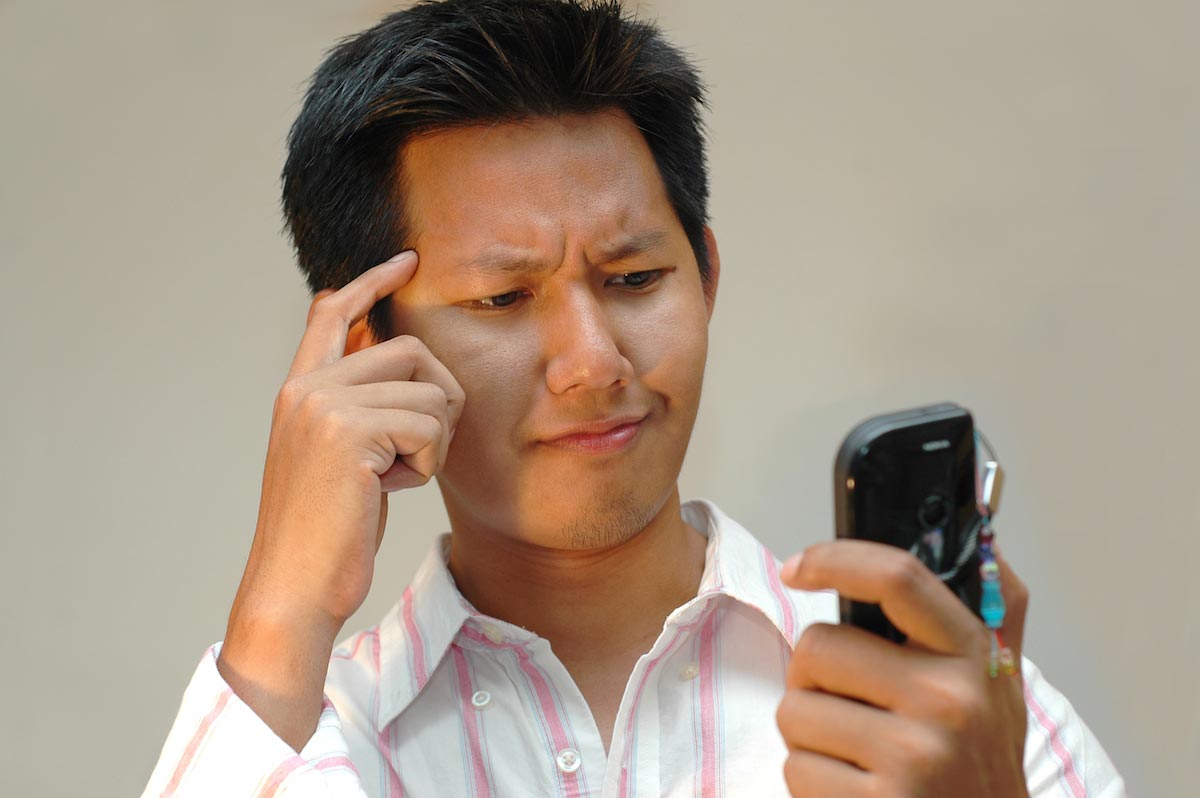Are you addicted to your phone? Signs of mobile phone addiction
08/22/2018 / By Edsel Cook

Cell phones are even more pernicious than booze, smoking, and drugs because they seem so useful. An article on Be Brain Fit covers the signs of addiction to mobile phones and how to remedy them.
There are many signs that you are getting too attached to your cell phone:
- You find yourself always checking it and cannot refrain from using it. Or you lose track of time while using it.
- You get angry, anxious, or panicked if you cannot use your phone. You pay more attention to it than to your family or other people. You even prefer to socialize over the phone than in person.
- If people bring up your excessive phone use, you feel defensive and guilty. You resort to lying in order to hide it. You even stop paying attention to other parts of your life.
- In addition, there are physical signs like eye strain, headaches, insomnia, pain and numbness in your wrist, pain in your back, and shifting weights.
People who are anxious, depressed, socially anxious, stressed, or suffer from ADHD or OCD are vulnerable to cell phone addiction. So are those who feel they have no social support. Teenagers are the most vulnerable.
Tech dependence and addiction expert Dr. David Greenfield said that 90 percent of cell phone owners “merely” use their phones too much. The remainder is addicted because cell phone usage has a bad effect on an important part of their life.
Greenfield developed a Smartphone Compulsion Test. Answering its simple “Yes or No” questions can determine if you are a normal user, a potential addict, or need help to deal with your addiction. (Related: Smart phone app ‘Fooducate’ could be the beginning of the end of GMO.)
Step-by-step approach to reducing cell phone usage and addiction
If you are aware of your addiction to cell phones and want to stop, it is best to take it slowly. A step-by-step withdrawal will let you naturally grow into healthier habits.
- Do not text when you are driving. Ditto with talking over the phone; that can get you killed much faster than the radiation.
- To improve your sleep, keep the phone outside of your bedroom during the night. Or shut it down for the night.
- Delete the apps that you are addicted to. Avoid using the phone to kill time. Do not multitask with the device, like using your phone while eating food.
- Devote your full attention to your friends, family, or your loved one. Do not bring your phone out around them.
- Use monitoring apps like Checky, Moment, Freedom, and SelfControl to help reduce your use of your phone. Try out tech-free activities like physical exercise or hobbies. And if you really need it, find a behavioral addiction specialist who can help you deal with your addiction to cell phone use.
Cell phones are harmful even when you are not addicted to them
Even when you are not using it, your cell phone emits radiation that can harm your health. You can protect yourself from these negative effects with three easy steps.
- First, do not hold it near your head. Keep it at around arm’s length for the most part; if you need to use it, hold it as far as possible. Do not place it near your head when you are sleeping.
- Second, get a phone with a low specific absorption rate (SAR) rating. Don’t take the word of the manufacturer that it is safe. Check with trusted third-party sources.
- Finally, only use your cell phone during times when the signal is strong. Your exposure to radiation actually goes up when the signal is weak.
Learn more about the harmful effects of the electromagnetic field generated by cell phones and other devices at EMF.news.
Sources include:
Tagged Under: addiction, apps, breaking addiction, Cell phone addiction, cell phone radiation, cell phones, Cellphone Radiation, electromagnetic fields, mobile phone addiction, phone apps, smartphone addiction, smartphone apps, withdrawal




















